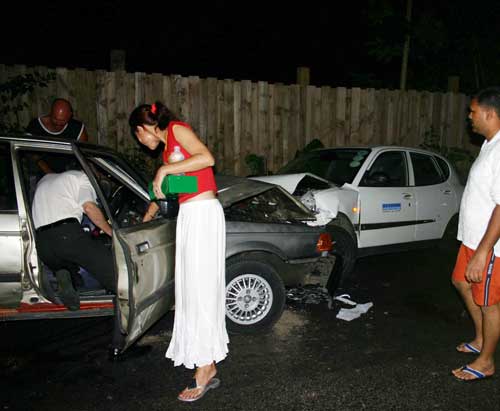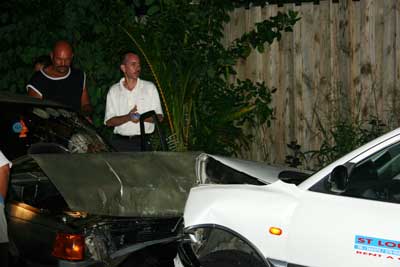

The Highway Patrol unit which operated under the Department of Transport between 1998 and 2002, then unceremoniously disbanded, has now been re-introduced as of Monday October 1.
Announcing the re-introduction on the state-controlled broadcasting media last week, the newly appointed Minister for Environment, Natural Resources and Transport, Joel Morgan, said, “We have found it necessary to reintroduce such an initiative, in view of the continuous increase of traffic-related offences and congestion in Victoria.”
Morgan claimed that there has been a decline in the standard of driving on

The previous Highway Patrol Unit under the Department of Transport was headed by ex-police officers experienced in traffic control. When it was disbanded, the police re-appointed the same officers to its revamped traffic section. In fact, it appears that the unit was disbanded because the police wanted to re-integrate the ex-officers in their newly revamped traffic section. Morgan did not say from where he will get experienced personnel to populate his new pseudo-police unit, which he said, would initially comprise 10 persons and will increase to 20 eventually. All indications are he will poach them from the police, a case of robbing Gerard to pay Joel.
According to Morgan, his new unit will work in “conjunction” with the Police to enforce the Road Act, the Road Transport Regulations and laws relating to other offences such as those pertaining to parking, speeding, movement of oversized vehicles, overloading of vehicles and spilling of construction materials on public roads. The officers will also undertake routine vehicle checks, conduct breath-testing test and issue on-the-spot fine of R200 to offenders Morgan said. Offences not admitted under the fixed penalty regulation are to be prosecuted under the Road Transport Act, Morgan said.
In reality, no one really pays a spot fine on the spot, at least not to the person who hands you the ticket. The principle of law behind it is that, if as demanded payment is made, it is deemed that you have pleaded guilty to the charge. It remains to be seen how the courts would entertain a deluge of minor traffic cases if everyone spot fined decided to have his or her day in court.
“As with all law enforcement agencies, the Transport Department is committed to serving the public, increasing productivity, and promoting safety for all road users. To help achieve these goals, the Highway Patrol Unit (HPA) would need the cooperation of all,” the minister is quoted as saying. Commissioner of Police Gerard Waye Hive admitted to the National Assembly this week that he has only one vehicle at his disposal to use in traffic control. Has Morgan decided to become the super cop of the highways and by-ways? Can he legitimately acquire for himself police powers in this area? Will he get the resources the police could not?
It very evident that on Mahe our roads have become more congested, especially in an out of
SPPF also abandoned a plan to build a fly-over highway from le Rocher to
Overloaded lorries spilling aggregates, sand and building materials on the roads is more a nuisance just as the slow moving Tata buses wining the narrow roads up the hill are. Nevertheless, given the hilly nature of the terrain, a heavy laden vehicle full of aggregates or sand running amok down the hill could conceivably cause serious damage to life and property. Is it fortuitous that it has not yet happened?
There are a number of reasons why there is a lot of congestion around the two roundabouts in
Minister Joel Morgan’s idea of dealing with the traffic problems, as well as the environment issues, is to shoot first and ask questions later. As usual, he is dealing with the symptoms rather than the cause. He has yet to announce how he will deal with the high accident rate of SPTC which has virtually made the parastatal the worst motor vehicle insurance risk. Now that SACOS is a private sector company, how long will the shareholders and other policyholders continue to should this burden?
